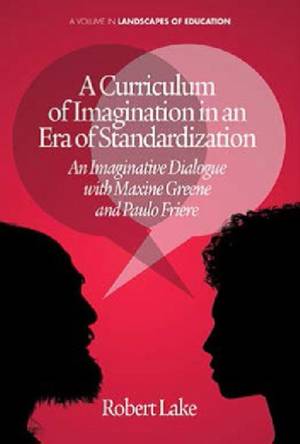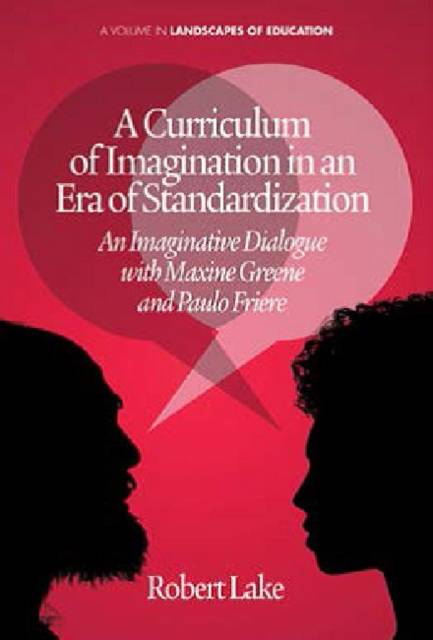
- Retrait gratuit dans votre magasin Club
- 7.000.000 titres dans notre catalogue
- Payer en toute sécurité
- Toujours un magasin près de chez vous
- Retrait gratuit dans votre magasin Club
- 7.000.0000 titres dans notre catalogue
- Payer en toute sécurité
- Toujours un magasin près de chez vous
A Curriculum of Imagination in an Era of Standardization
An Imaginative Dialogue with Maxine Greene and Paulo Freire
Robert LakeDescription
Robert Lake explores with the reader what is meant by imagination in the work of Maxine Greene and Paulo Freire and their relevance in an era of increasingly standardized and highly scripted practices in the field of education. The author explores how imagination permeates every aspect of life with the intent to develop capacity with the readers to look beyond the taken-for-granted, to question the normal, to develop various ways of knowing, seeing, feeling, and to imagine and act upon possibilities for positive social and educational change. The principal aspect of the work illustrated in this book that distinguishes it from other work is that an 'imaginary' dialogue between Maxine Greene and Paulo Freire runs through the book using actual citations from their work.
Each chapter starts with such a dialogue interspersed with the works of others and the author's critical autobiographical reflections. With a brief overview of the socio-cultural evolution of imagination from pre-literate times to the present, the author explores some of the current iterations of imagination including the eugenics movement and 'dark' imagination, sensing gaps and creative/critical imagination, metaphors as the language of imagination and empathy as social imagination. Reflecting upon emerging tensions, challenges, and possibilities curriculum workers face in such an era of standardization, the author calls for a curriculum of imagination.
After providing a brief overview of the socio-cultural evolution of imagination from pre-literate times to the present, the author looks at some of the current iterations of imagination, including the eugenics movement and 'dark' imagination, sensing gaps and creative/critical imagination, metaphors as the language of the imagination, and empathy as social imagination. All of these ideas are then incorporated in a curriculum of imagination that is envisioned through Joseph Schwab's four commonplaces of curriculum followed by a discussion of emerging tensions, issues and possibilities for praxis and scholarship in present and future inquiry.
Spécifications
Parties prenantes
- Auteur(s) :
- Editeur:
Contenu
- Nombre de pages :
- 162
- Langue:
- Anglais
- Collection :
Caractéristiques
- EAN:
- 9781623962661
- Date de parution :
- 22-03-13
- Format:
- Livre relié
- Format numérique:
- Genaaid
- Dimensions :
- 156 mm x 234 mm
- Poids :
- 403 g

Les avis
Nous publions uniquement les avis qui respectent les conditions requises. Consultez nos conditions pour les avis.






